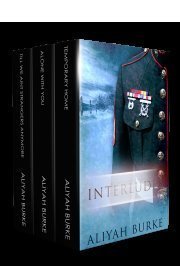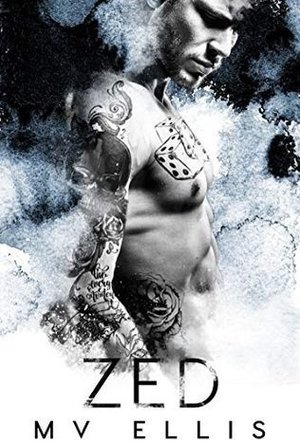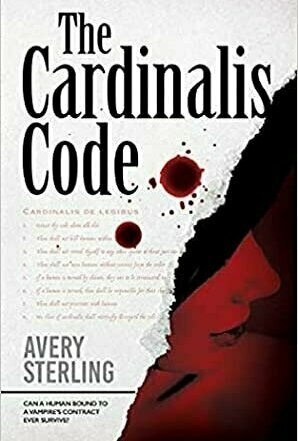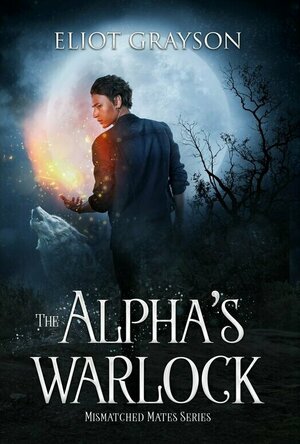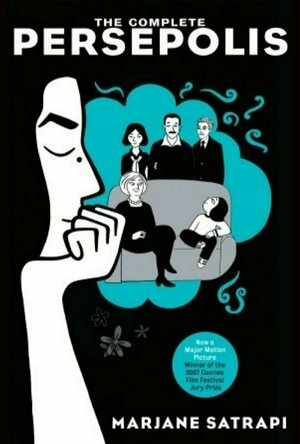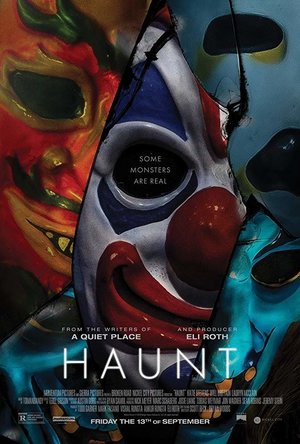Search
Search results
Debbiereadsbook (1650 KP) rated Interludes Box Set in Books
Aug 14, 2019
I LOVED THESE!
Independent reviewer for Archaeolibrarian, I was gifted my copy of this box set of three books.
Because I read these books back to back, as a set, I’m writing one review for the whole bundle, rather than three separate reviews.
And let me tell ya, I loved these books!
Well, I LOVED books one and three, two didn’t quite hit that spot, but still!
These books landed right in my queue when I needed them the most. I read a lot, A LOT, a lot and a huge chunk of those books are male/male romance of some description or other. Now, I’m not picky, I like to think I’m an equal opportunities reader, I will read most pairings so long as the blurb grabs. But it’s been a while since I had such great male/female pairings that were so bloody sexy!
There is instant and powerful attraction between Roxi and Sam in book one. Tuck and Ariel pussy foot around each other for the better part of two years before they act on their feelings in book two. Maya and Brent, in book three, had a one night stand some time (but I was never really clear on how long ago that was!) in Hawaii and when Brent finds himself face to face with Maya again, he wants to pick up where they left off.
Each book is well written, with both male and female lead having a say. All the characters have very different voices, and tell their stories in the third person. Each book has a Marine or two as the lead, and there are a whole host of other Marines that pop up in each book.
There is a huge supporting cast, spread over the three books, with some very interesting people who I want to have a story of their own. Some massive hints? Clues? Teasers, I think is probably the best word, to their stories and I need to know will there be more in this series??
I read tow of these books in one day, and had I not had to up at stoopid o’clock the next morning, I would probably have read all three! First I’ve read of this author, and now I want to read more. Her back list is massive though, and it may take some time to choose!
Like I said, book two did not quite hit *that* spot, but I’m still giving the whole set. . .
5 full stars
**same worded review will appear elsewhere**
Because I read these books back to back, as a set, I’m writing one review for the whole bundle, rather than three separate reviews.
And let me tell ya, I loved these books!
Well, I LOVED books one and three, two didn’t quite hit that spot, but still!
These books landed right in my queue when I needed them the most. I read a lot, A LOT, a lot and a huge chunk of those books are male/male romance of some description or other. Now, I’m not picky, I like to think I’m an equal opportunities reader, I will read most pairings so long as the blurb grabs. But it’s been a while since I had such great male/female pairings that were so bloody sexy!
There is instant and powerful attraction between Roxi and Sam in book one. Tuck and Ariel pussy foot around each other for the better part of two years before they act on their feelings in book two. Maya and Brent, in book three, had a one night stand some time (but I was never really clear on how long ago that was!) in Hawaii and when Brent finds himself face to face with Maya again, he wants to pick up where they left off.
Each book is well written, with both male and female lead having a say. All the characters have very different voices, and tell their stories in the third person. Each book has a Marine or two as the lead, and there are a whole host of other Marines that pop up in each book.
There is a huge supporting cast, spread over the three books, with some very interesting people who I want to have a story of their own. Some massive hints? Clues? Teasers, I think is probably the best word, to their stories and I need to know will there be more in this series??
I read tow of these books in one day, and had I not had to up at stoopid o’clock the next morning, I would probably have read all three! First I’ve read of this author, and now I want to read more. Her back list is massive though, and it may take some time to choose!
Like I said, book two did not quite hit *that* spot, but I’m still giving the whole set. . .
5 full stars
**same worded review will appear elsewhere**
Debbiereadsbook (1650 KP) rated Zed (Rough Ink, #1) in Books
Jul 3, 2019
really rather good!
Independent reviewer for Archaeolibrarian, I was gifted my copy of this book.
When Xavier comes into his tattoo shop, demanding Zed stamp his father on his ass, Zed knew this was NOT going to be a good day. When said teenager then throws up all over him, Zed loses his temper and calls the last nmber in the teenager's phone to come get him. When Octavia turns up for Xavier, Zed knows his life will never be the same again. But Zed has demons, ones he cannot ever forgive himself for. Why should he be happy, after what he has done?
I liked this, I liked the A LOT! Not quite enough to stretch to 5 stars, but still, a rather excellent read.
It's not immediately clear what Zed did, to hate himself so much, and when all is revealed, you see WHY does. It also takes time for the FULL story to come out. Makes you understand why he does what he does when he comes face to face with his brother after all this time.
Octavia is feisty, I liked her! She knows what she wants, even if she isn't getting it yet. She knows Zed has demons, and the lawyer in her grills him, but he's not giving up. She uses her own resources to find that out. Not really fair to Zed though, I thought!
The chemistry between them burns hot from the very beginning but it takes time for them to get to the main event. The fact that Zed ruins it, is besides the point! He knows Octavia is for him, but he can't be happy, not at all, it's not fair that he be happy.
Xavier, the spoilt, entitled teenager? He's the one who brings them together. His letter to Zed towrds the end made me cry! And then I find out what Octavia's letter says! More tears, for a one liner!
Book one in the series, and the first of Ellis' books I've read. More, I really need more! I'm assuming the guys and gals who work in the ink shop will get a story, since it's billed as the Rough Ink series. I hope that's so, cos some interesting characters here! Maybe, just maybe, even Xavier will get his happy ever after, cos Lord knows the boy really does need it!
A thoroughly enjoyable way to spend the afternoon.
4 solid stars
**same worded review will appear elsewhere**
When Xavier comes into his tattoo shop, demanding Zed stamp his father on his ass, Zed knew this was NOT going to be a good day. When said teenager then throws up all over him, Zed loses his temper and calls the last nmber in the teenager's phone to come get him. When Octavia turns up for Xavier, Zed knows his life will never be the same again. But Zed has demons, ones he cannot ever forgive himself for. Why should he be happy, after what he has done?
I liked this, I liked the A LOT! Not quite enough to stretch to 5 stars, but still, a rather excellent read.
It's not immediately clear what Zed did, to hate himself so much, and when all is revealed, you see WHY does. It also takes time for the FULL story to come out. Makes you understand why he does what he does when he comes face to face with his brother after all this time.
Octavia is feisty, I liked her! She knows what she wants, even if she isn't getting it yet. She knows Zed has demons, and the lawyer in her grills him, but he's not giving up. She uses her own resources to find that out. Not really fair to Zed though, I thought!
The chemistry between them burns hot from the very beginning but it takes time for them to get to the main event. The fact that Zed ruins it, is besides the point! He knows Octavia is for him, but he can't be happy, not at all, it's not fair that he be happy.
Xavier, the spoilt, entitled teenager? He's the one who brings them together. His letter to Zed towrds the end made me cry! And then I find out what Octavia's letter says! More tears, for a one liner!
Book one in the series, and the first of Ellis' books I've read. More, I really need more! I'm assuming the guys and gals who work in the ink shop will get a story, since it's billed as the Rough Ink series. I hope that's so, cos some interesting characters here! Maybe, just maybe, even Xavier will get his happy ever after, cos Lord knows the boy really does need it!
A thoroughly enjoyable way to spend the afternoon.
4 solid stars
**same worded review will appear elsewhere**
Debbiereadsbook (1650 KP) rated The Cardinalis Code in Books
Mar 23, 2020
read the book, people, read the damn book!
Independent reviewer for Archaeolibrarian, I was gifted my copy of this book.
So, there I was, merrily reading away. Enjoying this book, not a 5 star read, but a very good solid four star. Some minor typos, but they might be cos of the changing file thing. A good solid 4 star read, that piqued my interest enough to keep going.
And then, in the VERY last chapter, followed by the EPILOGUE, it all changed!
I mean, it made the whole bloody book flip on it's head! And it's gonna be really REALLY hard not to write spoilers into this review, so if it's vague, I ain't sorry!
Paislee takes a job as a blood donor, a donateur for Michael, a Cardinalis, (not EVER a vampire!) When Michael's vicious half brother takes a shine to Paislee, things become deadly, both for Paislee and Michael. Then The Order become involved and Michael has a fight on his hands to keep Paislee safe, and more importantly, to keep her HIS.
Like I said, plodding along, nicely. Moving at speed in places, and little slower in others. Sexy at points, but deadly in others. Sufficiently different in the 'vampire' (Sorry, Michael!) lore to be interesting. These guys don't combust in the sun or sparkle, either! They have a usual sleep pattern, they eat food. So, I enjoyed all that.
Both Michael and Paislee have a say, as do a couple of other characters.
The story concludes, or so I thought, in a way I expected it to, mostly. Michael's brother doesn't quite get the ending I was expecting but still. It all comes to a head and is wrapped up nicely.
THEN!
Michael's mother says something, and the doctor says something and then the doctor says something else and . . . . .cliff hanger people! I mean a proper, spit you dummy out, throw your toys out the pram and throw your kindle at the wall so hard it bounces off and scares the cat! I had to double back a couple of times, to reread what was said by whom, to put the pieces together, and still I have no bloody idea what's going on!
So, for a first book . . .very well played Ms Sterling! For a first in series, because there is much unfinished here, very well played. For that bloody cliff hanger . . .
5 full and shiny stars!
**same worded review will appear elsewhere**
So, there I was, merrily reading away. Enjoying this book, not a 5 star read, but a very good solid four star. Some minor typos, but they might be cos of the changing file thing. A good solid 4 star read, that piqued my interest enough to keep going.
And then, in the VERY last chapter, followed by the EPILOGUE, it all changed!
I mean, it made the whole bloody book flip on it's head! And it's gonna be really REALLY hard not to write spoilers into this review, so if it's vague, I ain't sorry!
Paislee takes a job as a blood donor, a donateur for Michael, a Cardinalis, (not EVER a vampire!) When Michael's vicious half brother takes a shine to Paislee, things become deadly, both for Paislee and Michael. Then The Order become involved and Michael has a fight on his hands to keep Paislee safe, and more importantly, to keep her HIS.
Like I said, plodding along, nicely. Moving at speed in places, and little slower in others. Sexy at points, but deadly in others. Sufficiently different in the 'vampire' (Sorry, Michael!) lore to be interesting. These guys don't combust in the sun or sparkle, either! They have a usual sleep pattern, they eat food. So, I enjoyed all that.
Both Michael and Paislee have a say, as do a couple of other characters.
The story concludes, or so I thought, in a way I expected it to, mostly. Michael's brother doesn't quite get the ending I was expecting but still. It all comes to a head and is wrapped up nicely.
THEN!
Michael's mother says something, and the doctor says something and then the doctor says something else and . . . . .cliff hanger people! I mean a proper, spit you dummy out, throw your toys out the pram and throw your kindle at the wall so hard it bounces off and scares the cat! I had to double back a couple of times, to reread what was said by whom, to put the pieces together, and still I have no bloody idea what's going on!
So, for a first book . . .very well played Ms Sterling! For a first in series, because there is much unfinished here, very well played. For that bloody cliff hanger . . .
5 full and shiny stars!
**same worded review will appear elsewhere**
Debbiereadsbook (1650 KP) rated The Alpha's Warlock (Mismatched Mates #1) in Books
Mar 27, 2020
great read, but I NEEDED Ian!
Independent reviewer for Gay Romance Reviews, I was gifted my copy of this book.
Nate is a warlock, and getting kidnapped and cursed by the Shimball werewolf pack wasn't in his plans for the day. When he manages to drag himself to tell the Armitage pack of the Shimball pack plans, mating the Alpha's brother wasn't in his plans either. But the only way to break the curse is to build a mate bond with an Alpha, so mate with Ian he does. There is just the minor detail that Ian hates Nate, and Nate has been attracted to Ian for such a long time. When the Shimball pack come for the Armitage pack, Ian has to keep Nate safe, even if it just gives him a chance to kill Nate himself!
I really REALLY enjoyed this!
Nate is quirky, and witty, and so bloody funny! Because the book is only told from his point of view, and in the first person, we get all of his wit and humour, but also, all of his terror at what his father did to him. His pain at realizing he might not be good enough for anyone. His reaction to the bond to Ian surprised him, and we get all of that. We get his dawning knowledge of what Ian has become to him.
The story moves along at pace in places, a little slower in others. The bigger picture, I think, isn't clear yet, and I have no idea what that picture might be, but I look forward to reading more.
The only thing, for ME, why I didn't give it 5 stars when I enjoyed it so much?
Single person person of view. Only Nate has a voice. I really REALLY needed Ian, at key points along the way, and I don't get him. I needed to know what he felt about having to mate Nate, although there were clues to that early on. I needed to know if the mate bond affected him as much as it did Nate. I needed to know just what his brother's betrayal means to him, and how much it hurts him. And I don't get him!
BUT!
A great read, and the first I've read of this author. I like the way they spin the tales. I look forward to reading more, especially after the epilogue here!
4 solid stars
**same worded review will appear elsewhere**
Nate is a warlock, and getting kidnapped and cursed by the Shimball werewolf pack wasn't in his plans for the day. When he manages to drag himself to tell the Armitage pack of the Shimball pack plans, mating the Alpha's brother wasn't in his plans either. But the only way to break the curse is to build a mate bond with an Alpha, so mate with Ian he does. There is just the minor detail that Ian hates Nate, and Nate has been attracted to Ian for such a long time. When the Shimball pack come for the Armitage pack, Ian has to keep Nate safe, even if it just gives him a chance to kill Nate himself!
I really REALLY enjoyed this!
Nate is quirky, and witty, and so bloody funny! Because the book is only told from his point of view, and in the first person, we get all of his wit and humour, but also, all of his terror at what his father did to him. His pain at realizing he might not be good enough for anyone. His reaction to the bond to Ian surprised him, and we get all of that. We get his dawning knowledge of what Ian has become to him.
The story moves along at pace in places, a little slower in others. The bigger picture, I think, isn't clear yet, and I have no idea what that picture might be, but I look forward to reading more.
The only thing, for ME, why I didn't give it 5 stars when I enjoyed it so much?
Single person person of view. Only Nate has a voice. I really REALLY needed Ian, at key points along the way, and I don't get him. I needed to know what he felt about having to mate Nate, although there were clues to that early on. I needed to know if the mate bond affected him as much as it did Nate. I needed to know just what his brother's betrayal means to him, and how much it hurts him. And I don't get him!
BUT!
A great read, and the first I've read of this author. I like the way they spin the tales. I look forward to reading more, especially after the epilogue here!
4 solid stars
**same worded review will appear elsewhere**
Ivana A. | Diary of Difference (1171 KP) rated The Complete Persepolis in Books
Apr 20, 2020
<a href="https://amzn.to/2Wi7amb">Wishlist</a>; | <a
<a href="https://diaryofdifference.com/">Blog</a>; | <a href="https://www.facebook.com/diaryofdifference/">Facebook</a>; | <a href="https://twitter.com/DiaryDifference">Twitter</a>; | <a href="https://www.instagram.com/diaryofdifference/">Instagram</a>; | <a href="https://www.pinterest.co.uk/diaryofdifference/pins/">Pinterest</a>;
<img src="https://diaryofdifference.com/wp-content/uploads/2020/03/Book-Review-Banner-25.png"/>;
<b><i>The Complete Persepolis is a graphic novel written by Marjane Satrapi that covers her life. This is a memoir of growing up as a girl in revolutionary Iran.</i></b>
This is a story of Satrap's childhood; growing up in a loving family in Tehran during the Islamic Revolution. We also follow Marjane in her high school years in Vienna. It is an interesting journey of a young girl becoming an independent woman.
<b><i>My Thoughts:</i></b>
I enjoyed the graphic novel style. It is an interesting concept of telling a story and I really liked it. It was easy to read and quick to engage with.
Even though I liked Marjane’s story, I didn’t like Marjane as a character. She seems a bit too arrogant. She seemed to always need to prove to the world who she is and what she is about. I have met a few people like that in my life and found them annoying.
It was really interesting to read about the culture and history of Iran and I loved the places in the book where they showed us the major differences in culture and beliefs. Growing up in Macedonia, I am no stranger to this culture, nor the beliefs, as Macedonia is a country with many different nationalities and religions living together. I have seen things, and I have heard things.
The writing was very humorous and the story plot was quite interesting. I didn't really feel any emotions during the book, but the sad ending really got me. What a way to finish a book.
<b><i>In conclusion, I have mixed feelings about The Complete Persepolis, only due to the way the character was set up and her attributes. However, I loved the representation of Iran, the way we are thrown into the culture and mindset, and how this book made me think twice.</i></b>
<a href="https://amzn.to/2Wi7amb">Wishlist</a>; | <a
<a href="https://diaryofdifference.com/">Blog</a>; | <a href="https://www.facebook.com/diaryofdifference/">Facebook</a>; | <a href="https://twitter.com/DiaryDifference">Twitter</a>; | <a href="https://www.instagram.com/diaryofdifference/">Instagram</a>; | <a href="https://www.pinterest.co.uk/diaryofdifference/pins/">Pinterest</a>;
<a href="https://diaryofdifference.com/">Blog</a>; | <a href="https://www.facebook.com/diaryofdifference/">Facebook</a>; | <a href="https://twitter.com/DiaryDifference">Twitter</a>; | <a href="https://www.instagram.com/diaryofdifference/">Instagram</a>; | <a href="https://www.pinterest.co.uk/diaryofdifference/pins/">Pinterest</a>;
<img src="https://diaryofdifference.com/wp-content/uploads/2020/03/Book-Review-Banner-25.png"/>;
<b><i>The Complete Persepolis is a graphic novel written by Marjane Satrapi that covers her life. This is a memoir of growing up as a girl in revolutionary Iran.</i></b>
This is a story of Satrap's childhood; growing up in a loving family in Tehran during the Islamic Revolution. We also follow Marjane in her high school years in Vienna. It is an interesting journey of a young girl becoming an independent woman.
<b><i>My Thoughts:</i></b>
I enjoyed the graphic novel style. It is an interesting concept of telling a story and I really liked it. It was easy to read and quick to engage with.
Even though I liked Marjane’s story, I didn’t like Marjane as a character. She seems a bit too arrogant. She seemed to always need to prove to the world who she is and what she is about. I have met a few people like that in my life and found them annoying.
It was really interesting to read about the culture and history of Iran and I loved the places in the book where they showed us the major differences in culture and beliefs. Growing up in Macedonia, I am no stranger to this culture, nor the beliefs, as Macedonia is a country with many different nationalities and religions living together. I have seen things, and I have heard things.
The writing was very humorous and the story plot was quite interesting. I didn't really feel any emotions during the book, but the sad ending really got me. What a way to finish a book.
<b><i>In conclusion, I have mixed feelings about The Complete Persepolis, only due to the way the character was set up and her attributes. However, I loved the representation of Iran, the way we are thrown into the culture and mindset, and how this book made me think twice.</i></b>
<a href="https://amzn.to/2Wi7amb">Wishlist</a>; | <a
<a href="https://diaryofdifference.com/">Blog</a>; | <a href="https://www.facebook.com/diaryofdifference/">Facebook</a>; | <a href="https://twitter.com/DiaryDifference">Twitter</a>; | <a href="https://www.instagram.com/diaryofdifference/">Instagram</a>; | <a href="https://www.pinterest.co.uk/diaryofdifference/pins/">Pinterest</a>;
Phillip McSween (751 KP) rated Haunt (2019) in Movies
Feb 15, 2020
Not Thought-Provoking But Fun!
In Haunt, a group of friends experience terror like no other when they go to a haunted house expecting a scare. For a movie that wasn’t done by a major studio, I have to say it ain’t half bad.
Acting: 10
Beginning: 3
If it wasn’t for such a slow start, I would definitely have put Haunt on the great level. Things don’t get moving nearly as fast as you like making me wonder if the rest of the movie was going to be like this. Fortunately things do pick up and, once things get rolling, the movie is good to go.
Characters: 7
The antagonists in this movie are super creepy, creepy enough to keep you entertained the whole movie. Meanwhile, the friends that are stalked can be pretty cardboard and plain, although I did appreciate how character development was worked in with a select few. It ultimately kept the story interesting.
Cinematography/Visuals: 8
Conflict: 10
The creepiness level is on 1,000 here as there is danger around every turn. The movie definitely keeps you guessing, building on intensity scene after scene like a true-to-form horror movie. I loved that I was scared when I didn’t need to be. I also appreciated that, once the movie kicks into gear, no shot is wasted from that point on. Conflict abounds consistently throughout.
Entertainment Value: 7
Memorability: 8
The movie succeeds by providing a lot of different setpieces that remain etched in your memory. The kills aren’t half bad either. Sure, it’s not the most thought-provoking film, but not bad as slashers go.
Pace: 10
Plot: 5
Resolution: 10
This movie ramps up the intensity right up to its thrilling conclusion where probably one of the most awesome kills in the film happens. I always gripe about the payoff in scary movies and how they can sometimes end abruptly so as to preserve a sequel. Haunt avoids that pitfall and goes all in with its ending that’s both engaging and fun.
Overall: 78
I would say this isn’t a bad movie to watch if it’s October and you’re tired of the same old Krueger and Jason song and dance. Had the characters been a twinge more interesting and the beginning hit with a little more boom, I would be leaning more towards the side of great horror to watch anytime. I love when independent horror and sci-fi hit the mark.
Acting: 10
Beginning: 3
If it wasn’t for such a slow start, I would definitely have put Haunt on the great level. Things don’t get moving nearly as fast as you like making me wonder if the rest of the movie was going to be like this. Fortunately things do pick up and, once things get rolling, the movie is good to go.
Characters: 7
The antagonists in this movie are super creepy, creepy enough to keep you entertained the whole movie. Meanwhile, the friends that are stalked can be pretty cardboard and plain, although I did appreciate how character development was worked in with a select few. It ultimately kept the story interesting.
Cinematography/Visuals: 8
Conflict: 10
The creepiness level is on 1,000 here as there is danger around every turn. The movie definitely keeps you guessing, building on intensity scene after scene like a true-to-form horror movie. I loved that I was scared when I didn’t need to be. I also appreciated that, once the movie kicks into gear, no shot is wasted from that point on. Conflict abounds consistently throughout.
Entertainment Value: 7
Memorability: 8
The movie succeeds by providing a lot of different setpieces that remain etched in your memory. The kills aren’t half bad either. Sure, it’s not the most thought-provoking film, but not bad as slashers go.
Pace: 10
Plot: 5
Resolution: 10
This movie ramps up the intensity right up to its thrilling conclusion where probably one of the most awesome kills in the film happens. I always gripe about the payoff in scary movies and how they can sometimes end abruptly so as to preserve a sequel. Haunt avoids that pitfall and goes all in with its ending that’s both engaging and fun.
Overall: 78
I would say this isn’t a bad movie to watch if it’s October and you’re tired of the same old Krueger and Jason song and dance. Had the characters been a twinge more interesting and the beginning hit with a little more boom, I would be leaning more towards the side of great horror to watch anytime. I love when independent horror and sci-fi hit the mark.

Mini-U: Logic
Education and Games
App
The game of Logic is a great educational and teaching tool for your child. It helps to learn the...

Write My Name
Education
App
Developed by experts and endorsed by parents and teachers, Write My Name is a fun way for children...

Quick Graph+
Education and Utilities
App
"The app you need to survive the next semester" -- Gizmodo Quick Graph+ is the best graphing...
